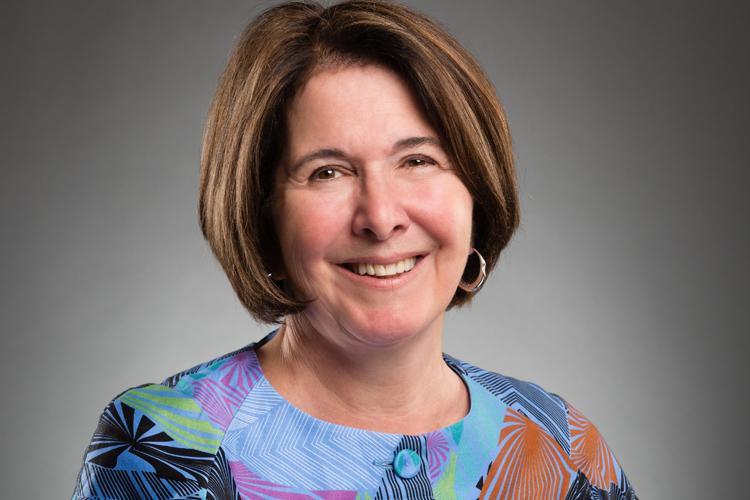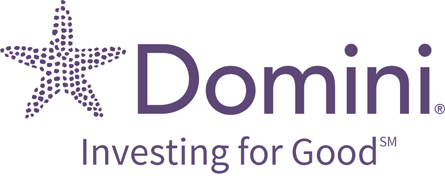The Year Wall Street Got Sustainable Investing
The latest insights from Amy Domini
The Year Wall Street Got Sustainable Investing
by Amy Domini, Founder, Domini Impact Investments
On October 23, 2018 the Financial Times published an article stating that Larry Fink, CEO of the world’s largest asset manager, BlackRock, had announced that “sustainable investing will be a core component for how everyone invests in the future.” He further explained that sustainable investing did not lead to lower returns and that in his own opinion such a strategy will lead to higher returns.
The news story was of particular interest to me for two reasons. First, there was the fact that my field, so long considered a tiny outlier in the field of finance, had survived to become the declared future of financial asset management by someone whose efforts to build my field were not notable a decade ago. Second, was the use of “Sustainable Investing” rather than “Environmental, Social and Governance (ESG),” which most big banks and asset managers are more comfortable using.
In my opinion, Mr. Fink’s statement means that we early advocates have convinced the world of the need for adding ‘people and the planet’ into our way of investing, and it means that the world’s most conventional asset manager doesn’t need an academic catch phrase to hide behind. Larry Fink is okay with saying the word sustainability. Simply acknowledging that making money at the cost of losing our planet is unsustainable is an extraordinary step forward for the masters of Wall Street.
He isn’t alone. My local CFA Society in Boston just invited me to register for the Sustainable Investing Seminar. It is being led by Jeremy Grantham, the co-founder of Grantham Mayo Van Oterloo, only one of the largest asset managers in the world. He is quoted on my invitation as saying, “We are racing to protect more than our portfolios from stranded assets and other climate change impact…But for those portfolio managers who happen to be human, we have a much more important job. We are racing to protect not just our portfolios, not just our grandchildren, but our species. So get to it.”
These men are the sort of advisors who used to say to me, “Look, I agree with you about all that important stuff, it’s just that I have to keep blinders on and look only for profit or I am letting my clients down.” It was an easy out, and it got dangerous. In October 2008 the Department of Labor (DOL) altered the language guiding fiduciaries. I underline the new words they used. “The named fiduciary must carry out this responsibility solely in the participants’ and beneficiaries’ interest in the economic value of the plan assets…” In other words, it is okay to kill off the beneficiaries if you protect the plan assets. Late in 2016 the DOL reverted to the prior language after eight years of efforts by my industry to keep people in the standards that fiduciaries consider.
The above example demonstrates what a small tweak in language can lead to – it can change the entire mission from protecting people to protecting money. It also demonstrates the importance of conventional investment managers shouldering responsibility for people. I say this because only when my industry was joined by many conventional asset managers – complaining that they were being locked out of tremendous clients demand for green venture capital – did the DOL reverse the language.
2018 is beginning to look as though it may be the year in which not just we, but the world, starts to appreciate the remarkable impact from the very existence of our field.
To be sure, the outcomes have been there all along, but now they are more clearly the direct result of our existence and of nothing else. In Domini Impact Investment’s Impact Report we name a few. We point out that in 2016 the sustainable Stock Exchanges Initiative found that 58 stock exchanges, representing over 70 percent of listed equity markets have made a public commitment to advancing sustainability. Would that have happened without investors asking for information about social and environmental impacts? We note that in 2017 the United Nations program, Principles for Responsible Investment, published a model tax policy that aligns the company’s business and sustainability strategies. Would the United Nations have noticed this intersection without our efforts to bring it forward? To download our full impact report, with many more examples, vist the Domini.com website.
Read Amy Domini's full article here - https://greenmoneyjournal.com/the-year-wall-street-got-sustainable-investing
Article by Amy Domini, Founder and Chair of Domini Impact Investments She is widely recognized as the leading voice for socially responsible investing. In 2005, Time magazine named her to the Time 100 list of the world’s most influential people. In 2006, she was awarded an honorary Doctor of Business Administration degree from Northeastern University College of Law. Yale University’s Berkeley Divinity School presented Ms. Domini with an honorary doctorate in 2007. In 2008, Ms. Domini was named to Directorship magazine’s Directorship 100, the magazine’s listing of the most influential people on corporate governance and in the boardroom.
=======



